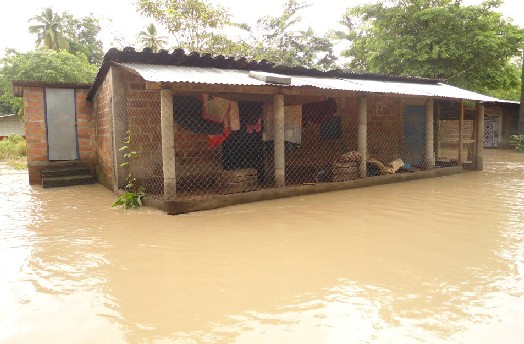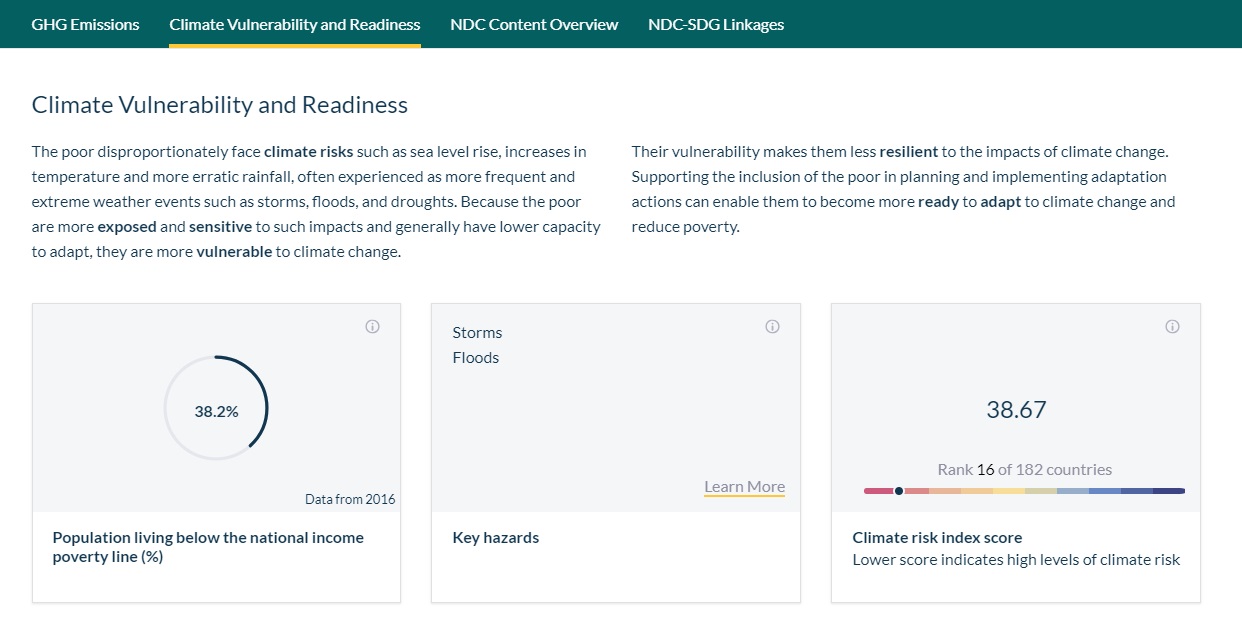Defending Natural Resources, Sister Cities
International Orgs: Climate Change & Hydroelectric Company to Blame for Flooding
Communities Organize Disaster Response & Demand More Government Collaboration
JIQUILISCO, El Salvador – As thousands of Salvadorans return to their homes and begin to rebuild their lives after last week’s historic rain and floods, many officials and civil society organizations in the region are blaming climate change for the catastrophe and calling upon the government to respond appropriately.
Last week, Tropical Depression 12-E and weather from Hurricane Jova poured more than 55 inches of rain over a seven-day period on Central America, far eclipsing Hurricane Mitch in 1998, the storm by which all others had been compared.
Though last week’s rain and flooding were more severe, local and national preparedness has improved dramatically since 1998, limiting the number of deaths in El Salvador to 34, compared to the 289 lives claimed by Hurricane Mitch.
Officials throughout Central American have attributed the extreme rain totals to climate change. Raul Artiga of the Central American Commission on Environment and Development (CCAD) stated, “Climate change is not something that is coming in the future, we are already suffering its effects.”
Herman Rosa Chávez, El Salvador’s Minister of the Environment, elaborated that the frequency of extreme rainfall events, defined by more than 100 millimeters (4 inches) in 24 hours, or 350 millimeters (14 inches) in 72 hours, in El Salvador has increased continually since the 1960s. Chávez said that until the 1980s, El Salvador “had never been affected by a Hurricane in the Pacific.” Since then, several of the worst weather disasters have resulted from Pacific weather patterns, including Hurricane Paul in 1982, Hurricane Mitch in 1998, and now Tropical Depression 12-E.
According to a recent report by The Economic Commission for Latin America and the Caribbean (ECLAC), climate change is expected to take a greater toll on the region in the future. “Studies agree on the upward tendency of costs,” says the report, “whether defined as damage to well-being or as a proportion of Gross Domestic Product (GDP).”
According to Roberto Valent, the United Nations Resident Coordinator in El Salvador, damages from last week’s extreme rain may reach more than US$1 billion.
The Lower Lempa of Jiquilisco, Usulután has been one of the hardest hit regions in El Salvador. The region is supposed to be protected by earthen levees that line the banks of the Lempa River, the largest in the country. The levees, however, burst when an upstream dam released 9,500 cubic meters of water per second, for more than 12 hours – three times the flow the levees were built to withstand.
While community leaders in the Lower Lempa agree that climate change is responsible for the extreme rainfall, they have long argued that the Hydroelectric Executive Commission of the Lempa River (CEL, for its name in Spanish) mismanaged the dam and corresponding reservoir, prioritizing the generation of electricity over mitigating the risk of flooding downstream. In February 2011, Rigoberto Herrera Cruz, the Deputy Mayor of Jiquilisco, stated that
“We believe the CEL [Lempa River Hydro-electric Commission] who runs the dam do massive water releases because to allow the water out little by little means they would earn slightly less profit,”
On October 20th, El Salvador’s President Mauricio Funes met with leaders in the Lower Lempa and promised support for reconstructing communities and local agriculture. Jiquilisco Mayor David Barahona stressed that the Central Government must also reconstruct the levees and restore the drainage system that helps channel floodwaters out of the region. Local development organizations have joined in this call, adding that the CEL must also manage its hydroelectric dams in a manner that prioritizes the safety of the communities downstream over their desire to maximize electricity production.
Minister Chávez added to the reconstruction conversation, “we cannot rebuild in the same vulnerable way. If we do not take the [changing weather] phenomena into account, we will be throwing that investment away.”
The undersigned group of international organizations works in partnership and solidarity with various organizations, government officials, and community boards in the Lower Lempa. We echo the concerns and demands stated by our local partners and Minister Chávez, and will support them in the days, weeks, and months ahead as they advocate for their communities.
Signed:
EcoViva – http://eco-viva.org/
Voices on the Border – http://votb.org/
The Share Foundation – http://www.share-elsalvador.org/
U.S. El Salvador Sister Cities – http://elsalvadorsolidarity.org
Fundacíon Cristosal – http://cristosal.org/


-300x225.jpg)
